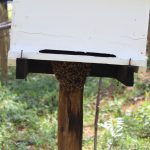ONGOING RESEARCH ACTIVITIES
Rongo University moves to brand its honey and build capacity in apiculture
As the Vice-Chancellor, Prof. Samuel Gudu receives an observation hive donated by African Beekeepers’ Ltd from Prof. Z. Ngalo Otieno-Ayayo (the Apiculture Project Team Leader), the University demonstrates its capacity to process and brand honey from its apiary. The Vice-Chancellor received samples of branded honey from the project team, with the Deputy Vice Chancellor (AFP) looking on. The observation hive will help in training beekeepers and other stakeholders to understand honey bee biology, habits and habitat structure, while at the same time offering an opportunity for state-of-the-art hands-on technical training in Apiculture. The move to start branding will also help small scale beekeepers who may need help with branding and marketing their products.
Rongo University, through this project, is in the process of building partnerships with Producer Organisations and other beekeeping stakeholders in order to improve the services in the Apiculture Value Chain. It is envisaged that through such partnerships honey production in Migori county will increase more than tenfold.
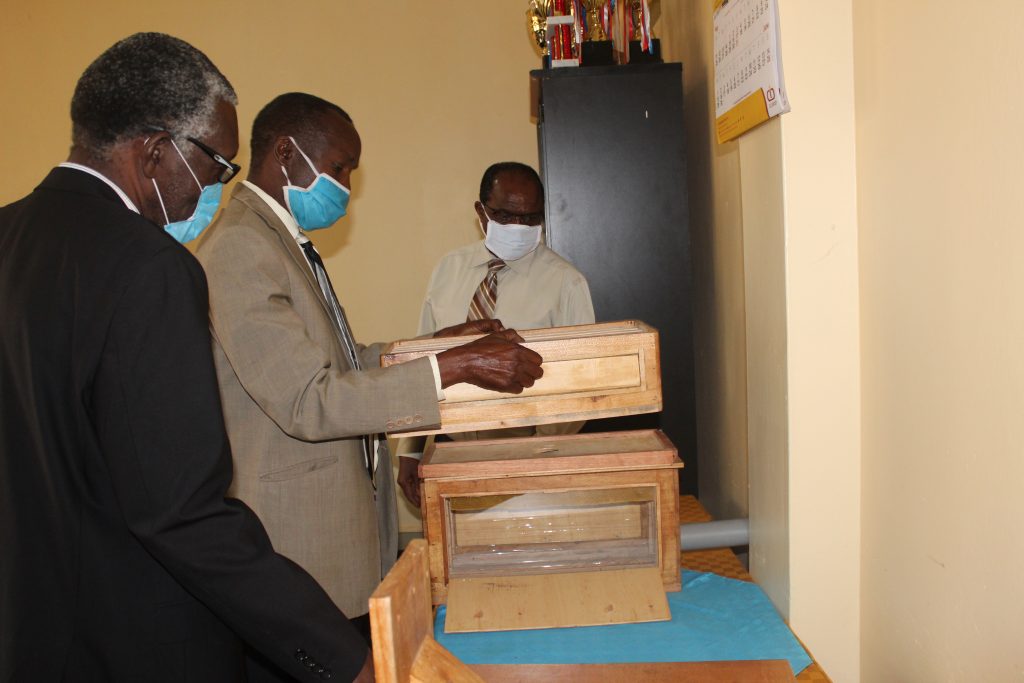
Apis melifera: Forage and Pollination Services
The honey bee, Apis melifera is a very important insect for balancing the ecosystem. Together with other insect pollinators, honeybees offer a remarkable service to the environment while at the same time satisfying their needs for food security. As they forage, they make sure they build the food reserves to maintain the colony. During this time, they collect pollen grains, nectar and resin from flowers and make different types of products useful to man. Man has consequently learnt to live with bees, helping them to get what they need for their natural factory for production of honey and allied products as they offer pollination services to sustain plants for food security and biodiversity. Honeybees are worth watching as they fill their pollen baskets and crops with food while buzzing with their beautiful tunes from dawn to dusk. In the following pictures and videos, honeybees are seen foraging on sunflowers (and the same happens in the maize fields and orchards) and red bottle brush flowers at Rongo University. The sunflowers will subsequently mature to yield seeds for production of cooking oil and seed cake for animal feed, while bottle brush flowers are beautiful ornamentals in our homes and places of work. Each plant visited by honeybees has its own unique story of ensuing products and services that must be told in its own page or space. So never kill a bee that comes your way. Give them water in plates or troughs with small stones to stand on as they drink whenever they pass by your homes and work places.
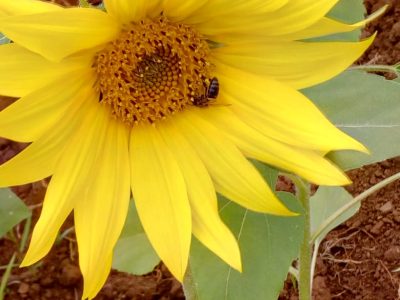
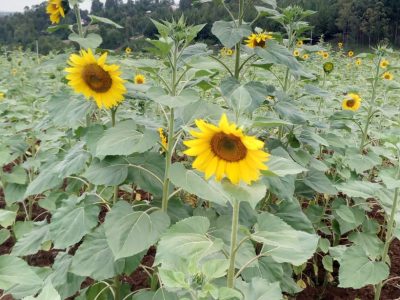
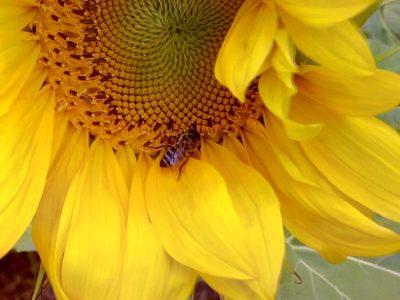
The Rongo University beekeeping project is an income generating project that also creates awareness to local communities on how science can be used for creating wealth and sustaining food security. The project also showcases the concept of Industrial Ecology.

